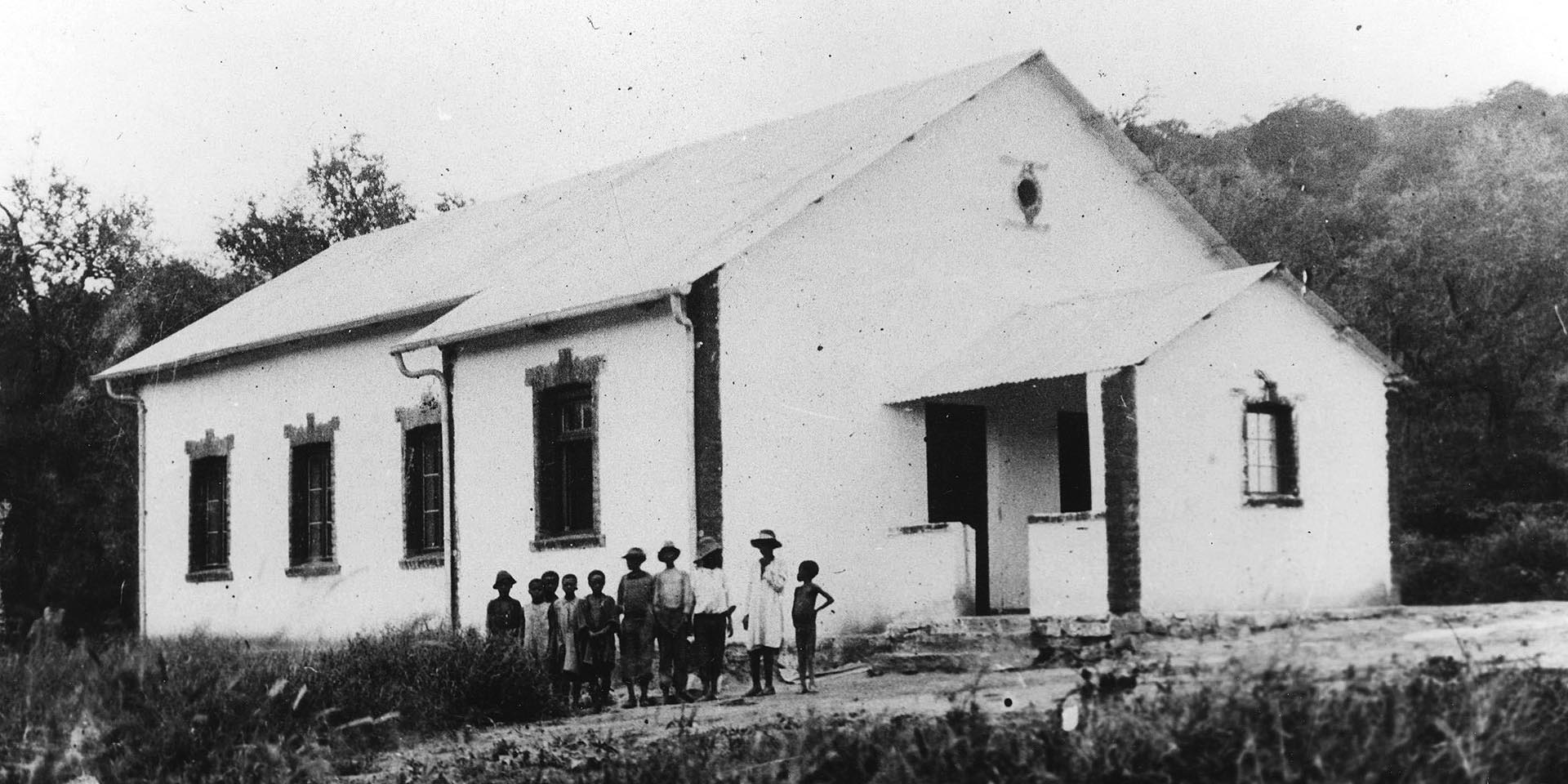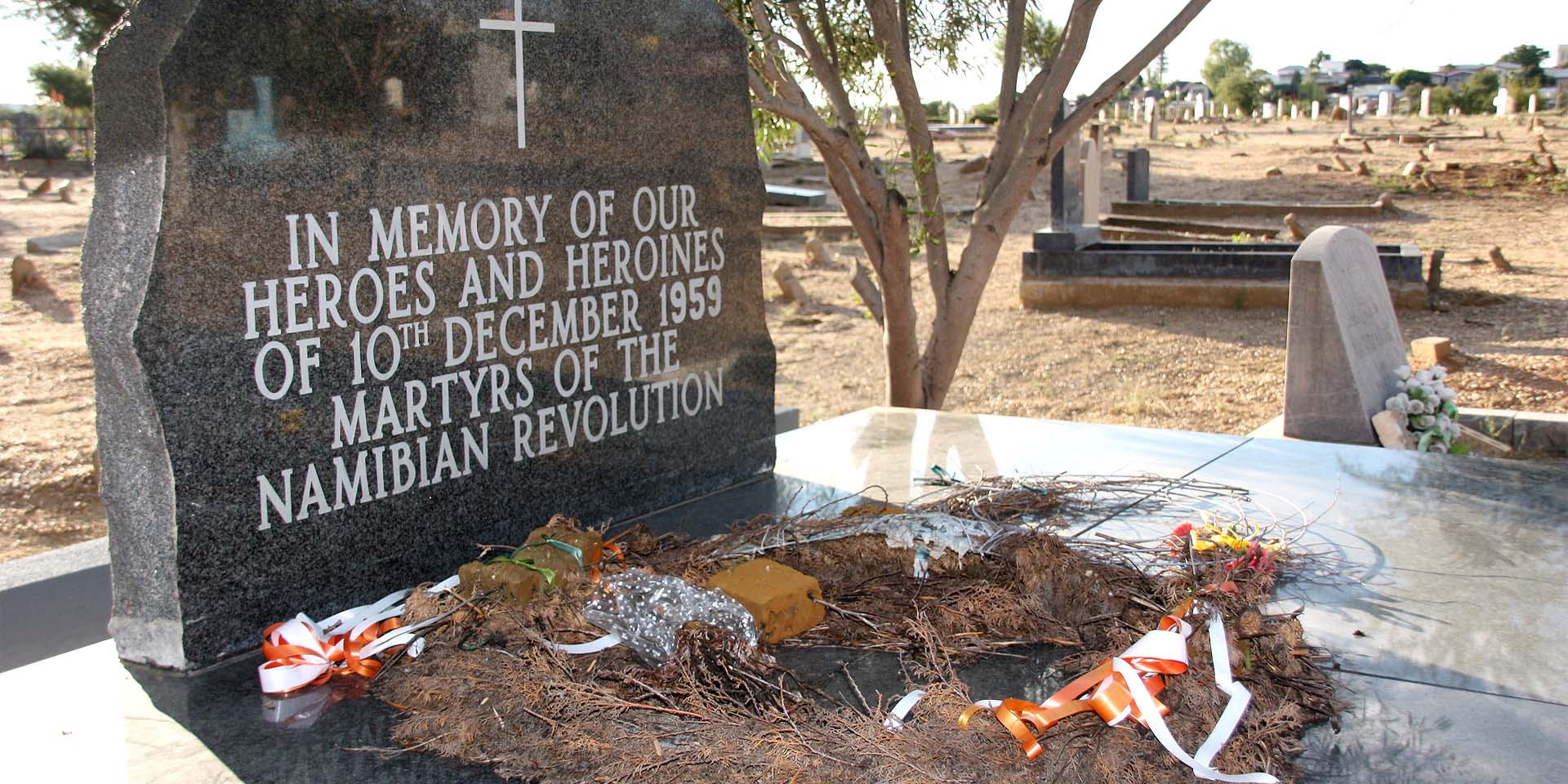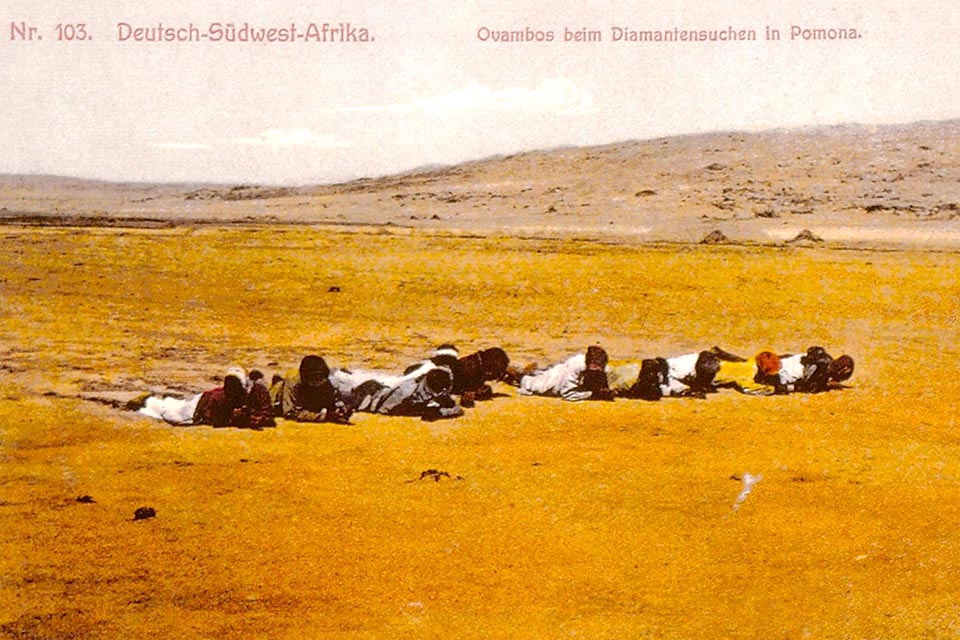It was not actually a battle. Historians speak of several skirmishes. 26 German soldiers were killed, 60 were wounded. The number of casualties on the OvaHerero side is estimated at 120 to 150.
And yet the 'Battle of Waterberg' or 'Battle of Ohamakari' was a decisive event. It is considered the beginning of the genocide of the OvaHerero.
Yesterday was exactly 120 years ago that the 'battle' took place on the Waterberg. Tens of thousands of OvaHerero had gathered there after several battles against the Germans since the outbreak of the war on 12 January 1904 in Okahandja.
The German soldiers arrived in four detachments from different sides. The commander-in-chief of the Schutztruppe, General Lothar von Trotha, intended to encircle the OvaHerero on the Waterberg.
3,000 to 6,000 Herero fighters with rifles and traditional weapons such as throwing clubs defended their positions. They were opposed by around 1,500 German soldiers with rifles, artillery pieces and machine guns.
The fighting lasted all day. Finally, the chiefs under Samuel Maharero at the Ohamakari waterhole decided to withdraw to the east. Their destination was the British protectorate of Betchuanaland (Botswana). More about the Battle of Waterberg / Ohamakari on Wikipedia.

Source: National Archives of Namibia
Fleeing through the Kalahari
The Herero men managed to push through a gap between the divisions. With their families and most of their livestock, they escaped to the east and fled through the Omaheke, as this part of the Kalahari is called.
The German soldiers and their horses were exhausted from the march and the fighting. There were also not enough supplies. Thus they were only able to take up the pursuit two days later and had to abandon it a few weeks later.
Finally, General von Trotha issued his infamous 'extermination order' on 2 October 1904. He ordered all Herero who returned to be shot. He also had the known water points occupied.
For the OvaHerero, the march through the Kalahari proved to be a disaster. Tens of thousands died of thirst. Only around 1,000 reached Betschuanaland, including Chief Samuel Maharero.
Around 12,000 survived hidden in the bush. They surrendered from January 1906 when the Germans assured them that they would not be harmed. They were given food in collection camps until they regained their strength.
Then they were transported to labour and concentration camps. One of these concentration camps was located on Shark Island in the bay of Lüderitz. Thousands of prisoners died in the cold and damp climate with poor health care, insufficient food and hard labour.
Commemoration in Namibia and Germany
there were no major commemorative events in Namibia yesterday. Instead, Paramount Chief Mutjinde Katjiua announced an international conference on the genocide of the OvaHerero. It is to take place from 30 September in Swakopmund. A commemorative walk is planned for 2 October, the 120th anniversary of the extermination order.
The annual commemoration of the burial of the remains of Samuel Maharero on 26 August 1923 in Okahandja will not be held this year. A year ago, hundreds of OvaHerero took part in the centenary commemoration.
In Germany, Bremen commemorated the Battle of Waterberg and the genocide yesterday at its anti-colonial memorial. The Hanseatic city sees itself as having a special responsibility. The merchant Adolf Lüderitz, who acquired the first territories in the south-west of what is now Namibia in 1883, came from Bremen.
In 1884, his land acquisitions were placed under the "protection" of the German Empire. The harbour town in the south of the Namibian coast still bears his name today.
Norddeutscher Rundfunk (NDR) had already dealt with the German colonial era and coming to terms with it in a radio programme on Friday. The guests were historian Matthias Häussler and the director of the State Museum in Hanover, Katja Lembke.
The governments of Germany and Namibia began negotiations in 2015 to come to terms with the colonial era. Their 'Joint Declaration' of May 2021 has not yet entered into force.
Paramount Chief Katjiua and victims' associations reject it.
Sven-Eric Stender




.png?width=82&height=85&name=Navigate%20Namibia-03%20(1).png)
SUBMIT YOUR COMMENT